
Frederick Dewayne Hubbard was an American jazz trumpeter. He played bebop, hard bop, and post-bop styles from the early 1960s onwards. His unmistakable and influential tone contributed to new perspectives for modern jazz and bebop.

Grady Tate was an American jazz and soul-jazz drummer and baritone vocalist. In addition to his work as sideman, Tate released many albums as leader and lent his voice to songs in the animated Schoolhouse Rock! series. He received two Grammy nominations.

Carlos Garnett was a Panamanian-American jazz saxophonist.

Gerald Stenhouse Jemmott is an American bass guitarist. He was one of the chief session bassists of the late 1960s and early 1970s, working with many of the period's well-known soul, blues, and jazz artists. He has won two Grammy Awards.

One Night with Blue Note is a 1985 feature length jazz film directed by John Charles Jopson.

Fat Albert Rotunda is the eighth album by jazz keyboardist Herbie Hancock, released in 1969. It was Hancock's first release for Warner Bros. Records after his departure from Blue Note Records. The music was originally done for the TV special Hey, Hey, Hey, It's Fat Albert, which later inspired the Fat Albert and the Cosby Kids TV show.
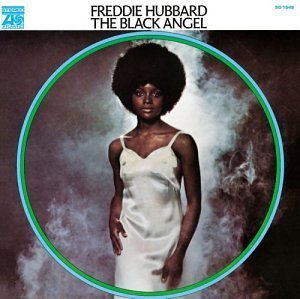
The Black Angel is a studio album by American jazz trumpeter Freddie Hubbard, recorded in 1969 and released in 1970. It was his fourth release on the Atlantic label and features performances by Hubbard, James Spaulding, Kenny Barron, Reggie Workman, Louis Hayes and Carlos "Patato" Valdes.
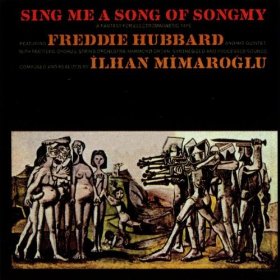
Sing Me a Song of Songmy is an album-length composition by avant-garde Turkish composer İlhan Mimaroğlu, released in 1971. Principal performers include jazz trumpeter Freddie Hubbard and Mimaroğlu himself.

Smackwater Jack is a 1971 studio album by Quincy Jones. Tracks include the theme music to Ironside and The Bill Cosby Show.
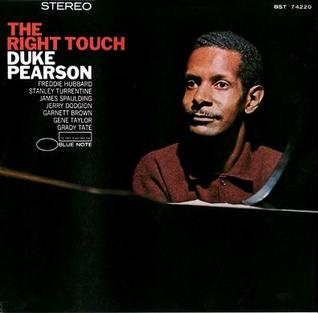
The Right Touch is the tenth album by American pianist and arranger Duke Pearson featuring performances recorded in 1967 and released on the Blue Note label in 1968.
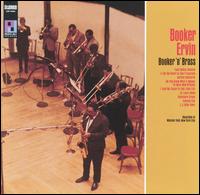
Booker 'n' Brass is an album by American jazz saxophonist Booker Ervin featuring performances recorded in 1967 for the Pacific Jazz label.

Peter & the Wolf is a 1966 studio album by Jimmy Smith, with Oliver Nelson's big band. It is based on Sergei Prokofiev's Peter and the Wolf.
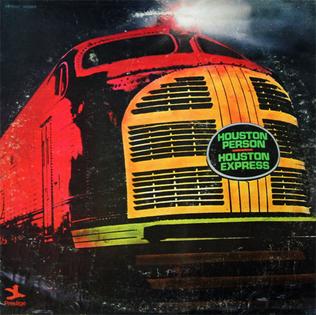
Houston Express is the ninth album led by saxophonist Houston Person. It was recorded April 8 & 9, 1971 and released on the Prestige label. To date, it has only been re-released on Compact Disc in South Africa.
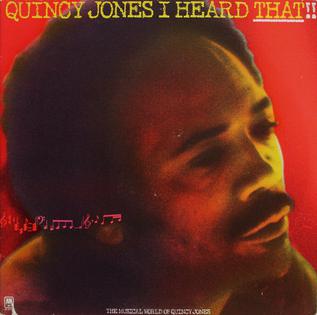
I Heard That!! is a 1976 double album by Quincy Jones.

The Worm is an album by American jazz organist Jimmy McGriff featuring performances recorded in 1968 and originally released on the Solid State label.

Come Hither is an album by saxophonist Sonny Stitt recorded in 1969 and released on the Solid State label.
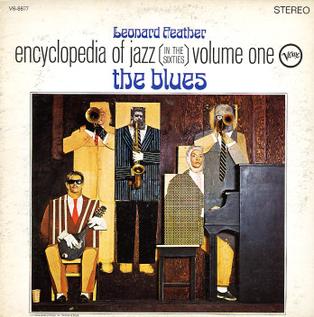
Encyclopedia of Jazz is an album released on the Verve label compiled by jazz journalist Leonard Feather featuring tracks which were recorded to accompany Feather's Encyclopedia of Jazz in the Sixties. The album features three tracks by the Encyclopedia of Jazz All Stars arranged and conducted by Oliver Nelson along with one track each by Jimmy Smith with Wes Montgomery, Count Basie and Johnny Hodges with Earl Hines.
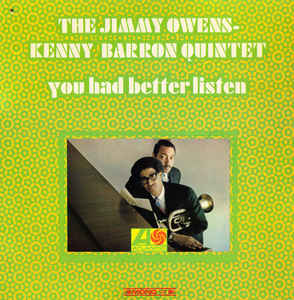
You Had Better Listen is a studio album by the American trumpeter Jimmy Owens and the pianist Kenny Barron, recorded in 1967 and released on the Atlantic label.


















